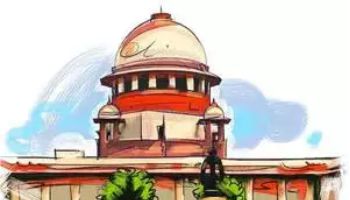The Supreme Court of India today handed down an order which in effect leaves no one responsible for the lives and livelihood of all working people in the country. In 28 pages of verbiage not located in constitutional rights, fact or the procedure of law, the Supreme Court accepted that employers cannot be held responsible for wages of workers during the lockdown.
Passing an interim order in the various petitions filed by employers seeking that the Government of India order of 29 March 2020 directing all employers to pay wages during the lockdown period be set aside, the Supreme Court directed workers to approach employers for their wages and upon failure to achieve this, they may approach the state adjudication machinery. The Supreme Court was careful not to get into the details of the enormity of the workers’ crisis, not dealing with the question of those on low wages or even just the minimum wage. While playing within the cracks of one of petitioners reference to ‘no work no pay’ and ‘equal pay for equal work’ the bench evaded the complex situation of workers willing to work but not being allowed to attend work because of the lockdown or being able to attend work being locked in in containment zones, non-availability of public transport and the various restrictions to ensure physical distancing. The court also ignored the fact that concessions have been granted to industry through the Rs. 20 lakh crore package of the Prime Minister while no provisions for wage payment or even wage subsidy has been made for workers.
While avoiding the complexity of the situation the Supreme Court concluded that ‘it cannot be disputed that the lockdown measures enforced by the Government of India under the Disaster Management Act, 2005, had equally adverse effect on the employers as well as on employees’. This conclusion merely confirmed that Supreme Court judges choose selectively to suspend their knowledge of reality while failing to ensure the protection of people’s fundamental rights provided for in the constitution. With this the Supreme Court has made clear that in fact employers enjoy a higher level of rights than workers and Article 14 of the constitution effectively places the right to make a profit on a higher plain than the right to a wage and thereby turning the principle of proportionality on its head. The Supreme Court has used this perceived equality to undervalue and dilute the right to life, provided under Article 21 of the constitution. If the Supreme Court was silent for two months on the issue of non-resident workers now it has expressed its unambiguous opinion as to which side it is on.
The Union Government of course also made its position clear as to who it stands with. It sought time to file its reply and never argued its case until it revoked the 29 March order with effect from 18 May. It sought several adjournments to file its reply. When government did finally file its reply it admittedly was non-substantive. The court today generously gave government until the end of July to file a complete reply when it will hear the case again. Until such time the apex court has granted protection to employers against any ‘coercive action’ against them. Hence in fact as the pandemic intensifies the so called ‘unlocking’ will be an easy time for employers while workers are victim to non-payment of wages, layoffs, redundancies and closures.
With both the Supreme Court and the BJP government turning on the working class, it is for the working class to prove its own self-reliance and resourcefulness in defending the spirit of equality and democracy of our constitution. It is for the working class not just to protect its own rights but to protect those of society at large.
Gautam Mody
General Secretary
